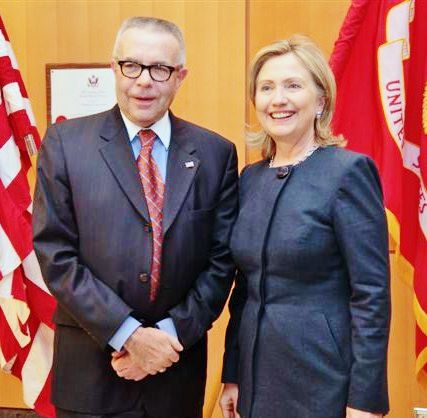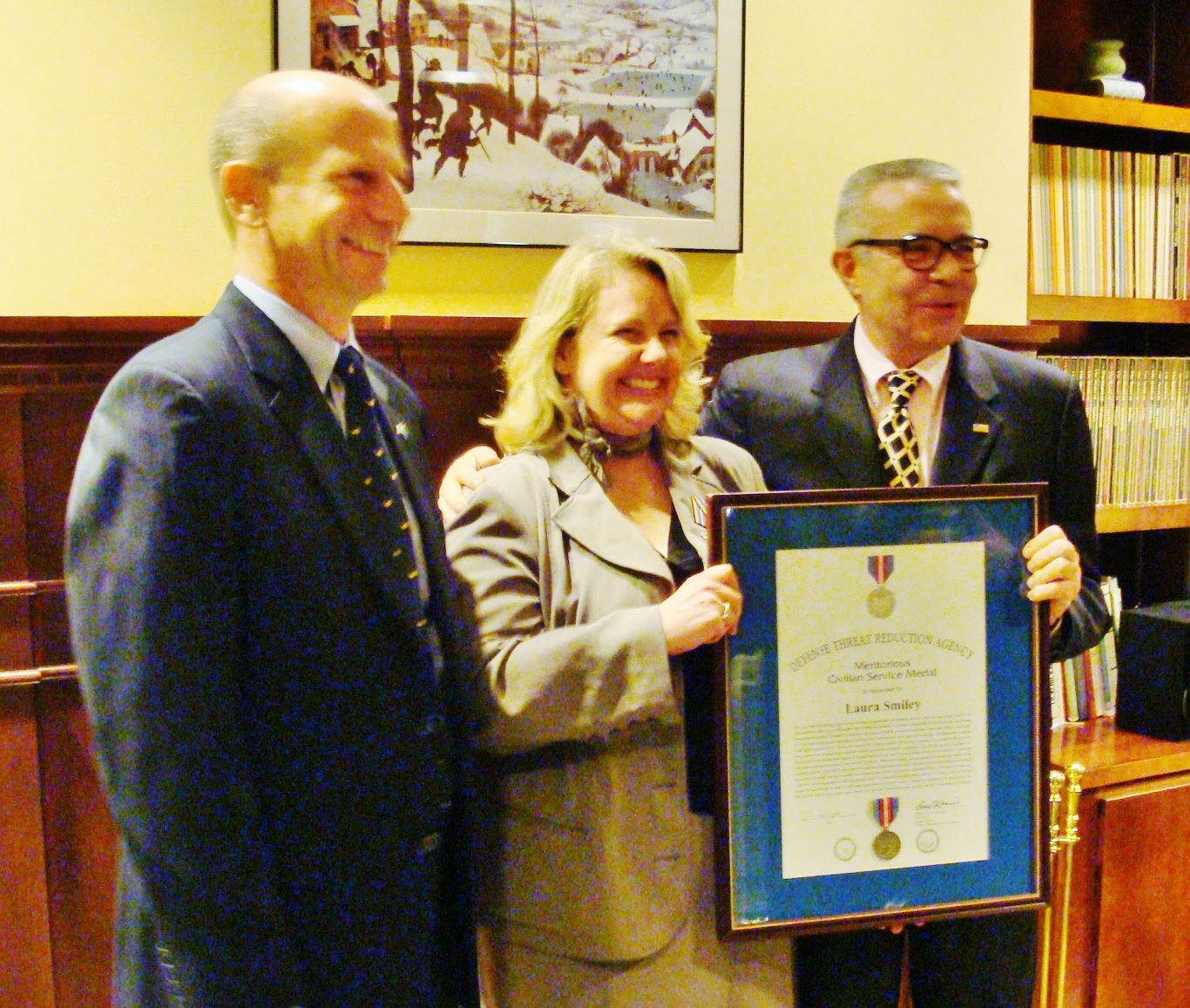Thirty Years Of Caspian Region Independence: A Personal Memoire, Richard E. Hoagland
Recent Articles
Author: Ambassador (Ret.) Richard E. Hoagland
01/24/2022
In the grand scheme of history, 30 years is the blink of an eye. The former Soviet Socialist Republics in the greater Caspian region – Armenia, Azerbaijan, and Georgia in the South Caucasus, and Kazakhstan, Kyrgyzstan, Tajikistan, Turkmenistan, and Uzbekistan in Central Asia – have all celebrated their 30th anniversary of independence. Not coincidentally, the United States is also celebrating 30 years of diplomatic relations with these eight countries. At the fall of the Soviet Union in December 1991, U.S. President George H. W. Bush moved carefully but quickly to recognize these countries and to set up U.S. embassies in each one. The policy that his administration established at that time has remained remarkably stable for three decades: to preserve and protect the independence, sovereignty, and territorial integrity of each of these eight countries.
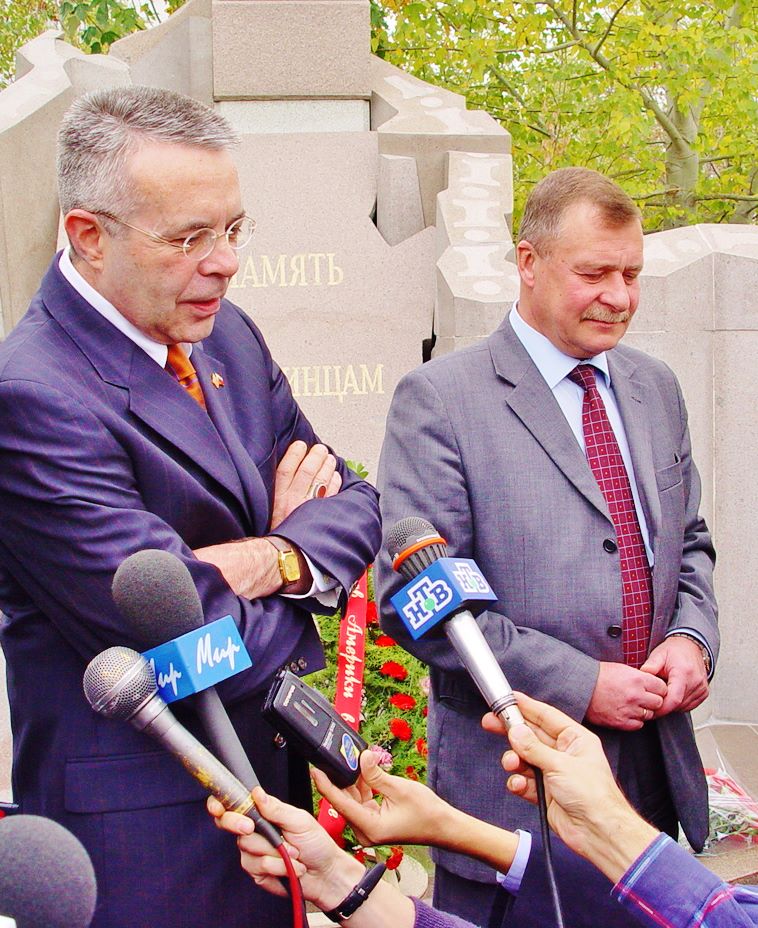
Press conference with Ambassador Maksim Peshkov after a wreath-laying ceremony at the headquarters of the Russian 201st Motorized Rifle Division in Dushanbe, Tajikistan, in November 2004.
At the beginning of their independence, no one knew what would happen. Each new country was headed, quite naturally, by a former Community Party Official. Some of the countries whose populations had already been agitating for independence – like Azerbaijan, Georgia, and Kazakhstan –cautiously welcomed this unexpected development; but others were taken aback, even shocked, because overnight their long-established political and economic lifelines that led directly to Moscow had been severed, and they now had to make a go of it on their own.
My own diplomatic career became embedded in these new countries, and over 30 years I watched close up, often actually on the ground, as each of these new countries found its way on the global stage. I was not by education or training a Sovietologist, nor had I ever studied the Russian language. But after rudimentary language training, I was privileged in 1993 to arrive at our new Tashkent embassy, a former Komsomol headquarters building in a leafy suburb just south of downtown. What I came to see quite quickly was that Uzbekistan was still very Soviet. In retrospect, that shouldn’t have been at all surprising.
With Secretary of State Hillary Clinton at the U.S. Embassy in Nur-Sultan (then Astana) in December 2010.
My job in our embassy was Public Affairs Officer. That meant I was responsible for building high-level media, culture, and education contacts in a country that had historically been the seat of the medieval Islamic Renaissance and the crossroads of the old Silk Road. The host government immediately assigned one of its intelligence officers as my “minder,” and I don’t believe I ever had a meeting without him present. As we got to know each other, he’d occasionally invite me to dinner one-on-one at one of Tashkent’s high-decibel nightclubs. This wasn’t an act of friendship; it was just part of his job. His goal was to try to get me drunk with vodka toasts to see if he could drag information out of me – for example, “What is the United States really doing in Uzbekistan? Why are you people really here?”
After two memorable – and thoroughly delightful – years in Uzbekistan, I moved to Russia where I was the U.S. Embassy Press Spokesman during the anything-goes latter Yeltsin years. I found that I easily made friends, who quite often would invite themselves for drinks on a Friday evening at my home in a former KGB apartment building – and often not leave until Sunday morning! As much as I enjoyed this unprecedented camaraderie, there came a point where I had to call a halt to it – if for no other reason than so I could function professionally on Monday morning and not look unnecessarily bedraggled as I gave TV interviews to CNN and BBC.
At an October 2010 U.S. Embassy reception in Nur-Sultan (then Astana), Kazakhstan, in honor of Andrew Weber (Project Sapphire) and Energy Attache Laura Smiley who oversaw the final stage of the Nunn-Lugar project to close down the BN-350 fast-breeder nuclear reactor and secure enough plutonium and highly-enriched uranium to have made over 750 nuclear weapons.
During this first decade of the independence of these new countries, the undercurrent in U.S. policy in Washington was that they surely would become free-market democracies, if only we could offer enough assistance. But they didn’t. And in retrospect, that’s not in the least bit surprising. They had lived through 70 years of the Soviet Empire and, before that, several hundred years of the Tsarist Empire, most of them with very, very little contact with the West. And even before that, especially in Central Asia, they had been Turkic-Mongol khanates or nomadic societies.
That means none had the cultural and political backgrounds that in the West are grounded in the Renaissance, the Reformation, and the Enlightenment. The ways of the West were utterly foreign to them. Whereas in the West, policy tends to promote the rights of the individual, the political systems in these countries focus on an autocratic, and sometimes hereditary, leader to whom citizens pay taxes, bribes, and near-total obeisance. And yet, without understand this deeply embedded history, some in Washington were increasingly disappointed that they hadn’t become like us, once they had the chance.
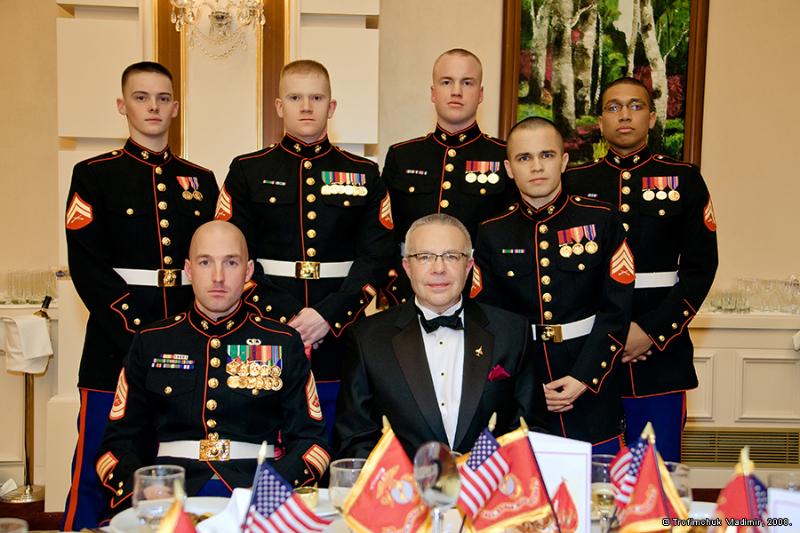
At the November 2009 Marine Corps Ball with the U.S. Embassy Marine Security Guards in Nur-Sultan (then Astana), Kazakhstan.
In September 2001, I had just started a new assignment in Washington at the State Department as the Office Director for the Caucasus and Central Asia when 9/11 changed the world. I was on the team that negotiated U.S. military access to the old Soviet airfield at Karshi-Khanabad in Uzbekistan and at the Manas International Airport in Bishkek, Kyrgyzstan. I wrote and negotiated the new Framework Agreements with the countries of Central Asia, and also negotiated the Northern Distribution Network agreements that permitted supplies for U.S. and NATO troops in Afghanistan to transit without customs duties the countries of the greater Caspian Region.
What is only now becoming better well-known is that Washington had seriously considered a third air base in Tajikistan and had begun the negotiations for that facility; that Turkmenistan had quietly, very quietly, permitted a U.S. Air Force refueling operation at the international airport in Ashgabat; and that Azerbaijan played a long-term and essential role providing jet fuel and transit facilities for the Western troops in Afghanistan. Further, it should never be forgotten that both Georgia and Azerbaijan provided troops for the NATO presence in Afghanistan, even though they were not – and are not now – NATO members. In fact, Azerbaijani troops were with their Turkish military colleagues until the very last moment on August 15, 2021, protecting the Kabul International Airport.
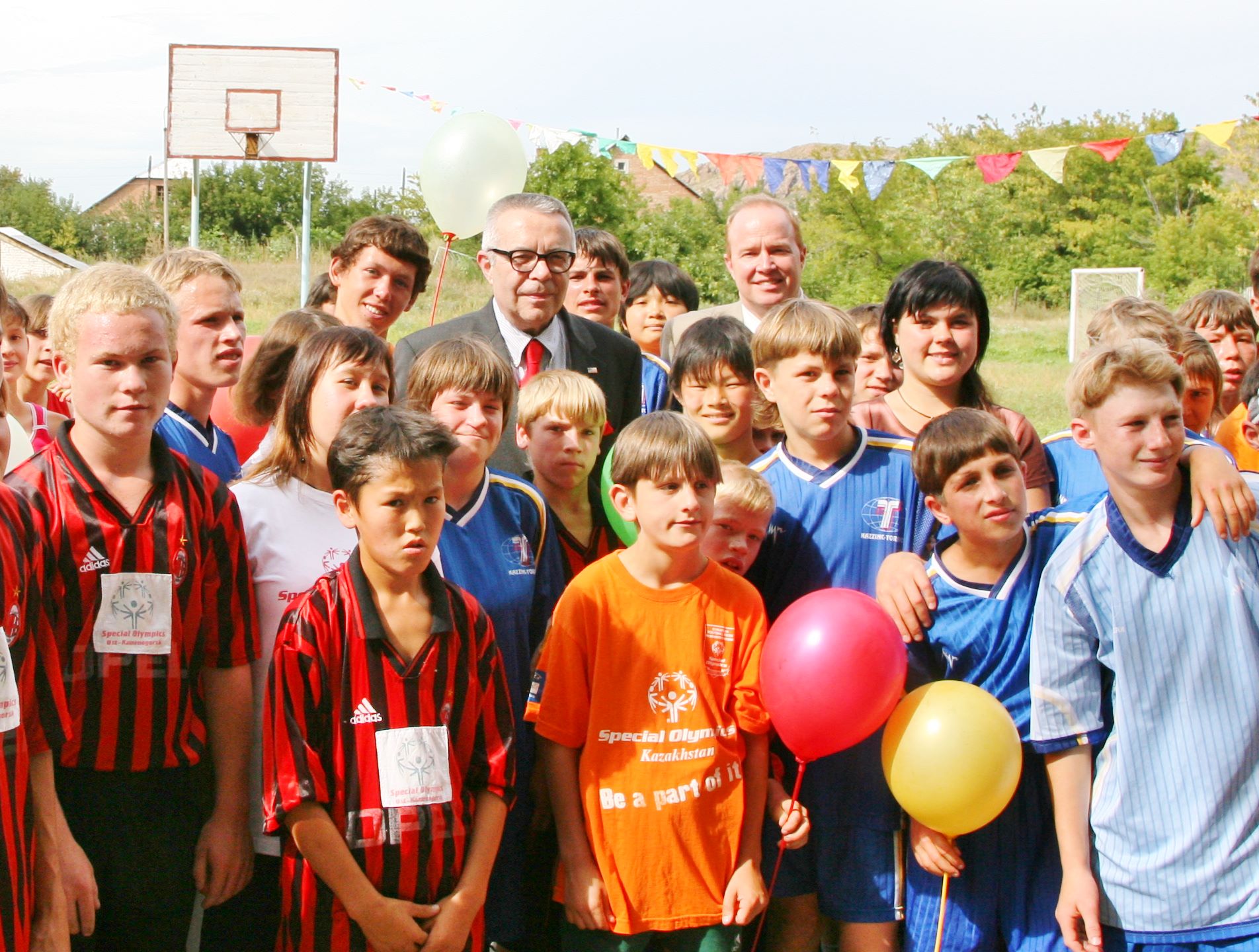
Visiting an orphanage in Mangistau, Kazakhstan, August 2009.
Each of the eight countries in the greater Caspian region has matured remarkably. Each in its own way works to balance its relations with Russia, China, the European Union, and the United States. Russian President Vladimir Putin has declared the region Russia’s “special sphere of influence,” and at times he has upped his adjective from special to exclusive. Russia would not be displeased to see the West, and especially the United States, lose interest in the region, pack up its bags, and go home. Over the years, China has become a key partner for most of the countries in the region, especially with its Belt and Road Initiative; and what we’re seeing now is that, as almost always happens, hard power follows soft power, and Beijing is starting to develop a military presence in the region. The European Union has maintained a steady interest in the region and regularly announces an updated political and economic plan for the countries. The question now, post-Afghanistan, is what will the United States do. An undercurrent of dissatisfaction with the various levels of governance and human-rights problems in most of the countries has motivated one faction of the foreign policy community in Washington to urge the United States to dial back its relations with these countries. That would be an historic mistake.
Each of these countries, each in its own way, depends on the United States. And as a new generation comes to power in these countries – people who have studied in the West and now regularly do business with Western companies – inevitably they will further internationalize these eight countries that only 30 years ago were still isolated Soviet Socialist Republics.
I strongly advise patience and full engagement.
NOTE: Amb. (ret.) Richard E. Hoagland served as U.S. Ambassador to Tajikistan (2003-2006), U.S. Charge d’affaires to Turkmenistan (2007-2008), U.S. Ambassador to Kazakhstan (2008-2011), and Principal Deputy Assistant Secretary of State for South and Central Asia (2013-2015). He is currently a member of the Board of Directors and Chairman of the Security and Politics Program at the Caspian Policy Center in Washington, DC.
